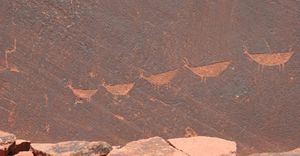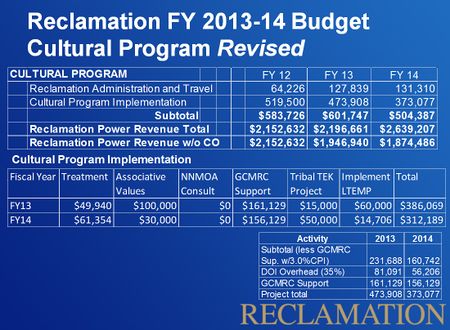Difference between revisions of "CULTURAL"
(add 2011 Zuni.pdf) |
(change wording) |
||
| Line 79: | Line 79: | ||
* [[Media:2012 Monitoring Report.pdf | Hopi 2012 Annual Monitoring Report]] | * [[Media:2012 Monitoring Report.pdf | Hopi 2012 Annual Monitoring Report]] | ||
* [[Media:2012 Hualapai doc.pdf | Hualapai 2012 Monitoring Report]] | * [[Media:2012 Hualapai doc.pdf | Hualapai 2012 Monitoring Report]] | ||
| − | * [[Media:2011 Zuni.pdf | | + | * [[Media:2011 Zuni.pdf | Zuni 2011 Cultural Resources Monitoring Report]] |
Revision as of 09:11, 17 September 2013
- USGS Cultural Resources Link USGS Cultural Resources Link
|
|
CULTURAL RESOURCES--The lower reaches of Glen Canyon and the river corridor through Grand Canyon National Park, Arizona, have been used by humans for at least 13,000 years. Today, at least nine contemporary Native American Tribes claim traditional cultural ties to this area. Grand Canyon National Park contains more than 4,000 documented prehistoric and historic sites, and about 420 of these sites are located in proximity to the Colorado River. The lower reaches of Glen Canyon contain an additional 55 sites. In addition to archaeological sites, cultural resources along the Colorado River corridor include historic structures and other types of historic properties, as well as biological and physical resources that are of traditional cultural importance to Native American peoples such as springs, unique landforms, mineral deposits, native plant concentrations, and various animal species |
| Cultural Resources Library (Motions) |
TBD (TBD) |
TBD (TBD) |
|---|
|

